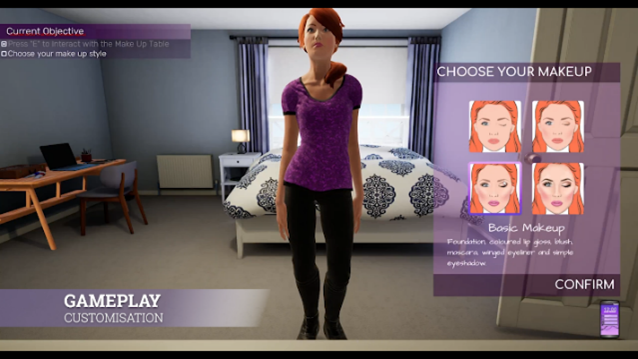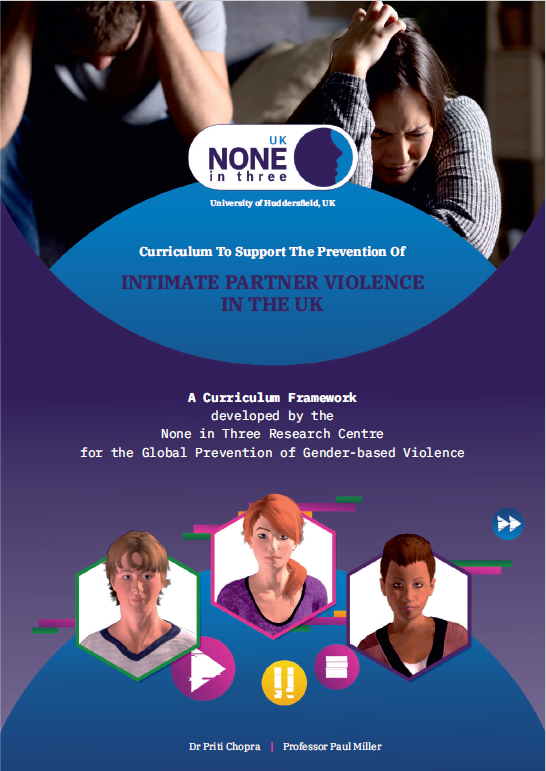Our computer game ‘Danielle’ which is focused on the issues of intimate partner violence, and is based in the UK, is now available as a free download via our UK game page.
This third person narrative exploration game, playable on Windows PCs, focuses on a girl named Danielle, her partner James and their friends. It looks at the issue of intimate partner violence (IPV) from a range of perspectives and the challenges faced by Danielle in her relationship with James.
The game has been designed, based on None in Three UK empirical research, to increase young people’s understanding of what constitutes a healthy or unhealthy relationship, in order to empower them to spot and call out the early signs of intimate partner violence. The aims of the game are to:
- empower young people;
- increase empathy for victims of intimate partner violence; and to
- help young people understand the importance of a healthy relationship.
Our goal has been to create a game that immerses the player in the character’s journey, increasing empathy and raising awareness of intimate partner violence using the interactivity and immersion that only games can offer. We have aimed for a seamless blend between gameplay and learning principles; the player’s total experience is integral to the learning process.
We would encourage all those who work with young people in the target age range of 13-16 in educational settings, to download the game and to try it out as a learning tool.
- A short technical guide is available to help you get started with the game.
- We have also developed through extensive research and consultation, a facilitator’s guide, in the form of an educational Scheme of Work with ideas for extending young people’s reflections and learning on the subject matter raised in the game.
Both of these are also available for free download on the same page as the game.
‘Danielle’ was evaluated via randomised controlled trials in seven schools in the UK between September 2021 and January 2022. 123 young people, aged 13-16 played the game. Analysis of the trials data suggests the game had a positive influence on the players’ attitudes towards intimate partner violence, as well as on their feelings of empowerment. The game was felt by school staff to be of potential future benefit and their feedback has been useful to inform future research and scale up planning.
If you download and use these resources, we’d really appreciate it if you could give us your feedback on the short forms relating to both the game and the facilitator’s guide on our UK game webpage.


The Facilitator’s Guide to accompany the video game is a free resource for teachers, to help them facilitate young people’s learning around the themes raised in the game.




